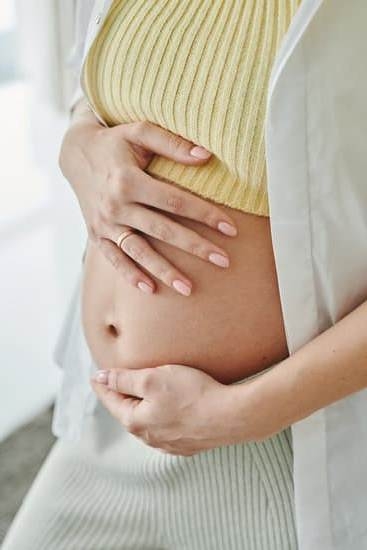: A Comprehensive Overview
Depression can be a very serious issue, especially when it comes to fertility. Depression can impact fertility in a number of ways, from decreasing sperm count to causing miscarriages. It is important to be aware of the signs and symptoms of depression, and to seek help if you think you may be suffering from it.
There are a number of different treatments for depression, including medication, therapy, and lifestyle changes. Treatment for depression is often successful, and can help you to feel better both physically and emotionally.
If you are struggling with depression and are trying to conceive, it is important to get help from a fertility specialist. A fertility specialist can help you to address the depression and to improve your chances of conceiving.
If you are struggling with depression, please seek help. The sooner you get treatment, the sooner you can start feeling better.
Ovulation And Fertility
Ovulation is the process of the woman’s body releasing an egg from one of her ovaries. This usually happens about two weeks before the start of a woman’s menstrual period. Fertility is the ability to get pregnant. A woman is considered fertile when she is ovulating.
There are a number of things that a woman can do to increase her chances of getting pregnant. One of the most important is to know when she is ovulating. There are a number of ways to do this. One is to track her basal body temperature. This is the temperature of her body when she is at rest. Another is to track her cervical mucus. This is the mucus that is produced by the cervix. It changes in consistency throughout the menstrual cycle. A woman can also use a home ovulation test kit.
Once a woman knows when she is ovulating, she can increase her chances of getting pregnant by having intercourse on those days. She can also increase her chances by having intercourse every day during her fertile period.
How Can A Woman Check Her Fertility
?
A woman’s fertility can be checked in a number of ways. One of the most common ways to check fertility is to track the woman’s basal body temperature (BBT) and cervical mucus. This can be done using a basal body thermometer and fertility chart. The woman takes her temperature every morning before getting out of bed, and records it on the chart. The temperature will rise slightly after ovulation, so by tracking it over a few months, a woman can determine when she is most fertile. Cervical mucus also changes during ovulation, becoming thinner and more slippery. A woman can check her cervical mucus by inserting a finger into her vagina and checking the mucus on her fingertip.
Other ways to check fertility include ultrasound and blood tests. An ultrasound can be used to check the size and shape of the uterus and ovaries, and can help to determine if there are any problems with the woman’s reproductive system. A blood test can be used to measure the level of the hormone progesterone, which increases after ovulation.
Fertility Pharmacies
: What You Should Know
When you are trying to conceive, you may be wondering about fertility pharmacies. What are they? What do they do? And, most importantly, are they right for you?
Fertility pharmacies are special pharmacies that focus exclusively on fertility and reproductive health. They offer a variety of services, including specialized fertility medications, counseling, and support. They can be a great resource for couples who are trying to conceive.
Fertility pharmacies can provide a variety of services, including:
-Specialized fertility medications
-Counseling
-Support
If you are trying to conceive, a fertility pharmacy may be a great resource for you. They can provide you with specialized fertility medications, counseling, and support.
How Much Is A Fertility Test
?
A fertility test is a diagnostic procedure that helps to assess a woman’s ability to conceive. The test can help to identify any potential fertility issues and help to determine the best course of treatment. The cost of a fertility test will vary depending on the location and the type of test that is performed.
The most common fertility test is a pelvic exam. This exam is used to check the condition of the woman’s reproductive organs. It can help to identify any abnormalities or problems that may be interfering with fertility. The cost of a pelvic exam will vary depending on the location, but it typically costs between $50 and $200.
Another common fertility test is a blood test. This test is used to measure the woman’s hormone levels. It can help to identify any problems with ovulation or the production of hormones. The cost of a blood test will vary depending on the location, but it typically costs between $50 and $100.
Other fertility tests may include an ultrasound, a hysterosalpingogram, or a semen analysis. The cost of these tests will vary depending on the location and the type of test that is performed.

Welcome to my fertility blog. This is a space where I will be sharing my experiences as I navigate through the world of fertility treatments, as well as provide information and resources about fertility and pregnancy.





